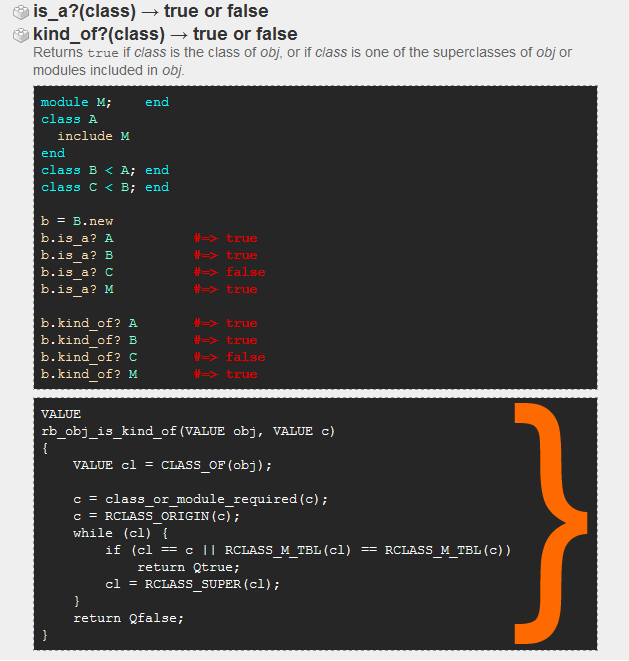Simple Extension for Mac
-
@olilej said:
I've been playing around with C Extension recently and I would like to know how if there is an equivalent of is_a? ruby function in C level.
If you have the CHM... you can click on the method description, and the C source will popup:
(Also works for online version, but the source link must be clicked directly, and is only visible when the mouse is hovering over the method description.)

-
So it looks like there are some macros defined in C, to make life easier ... CLASS_OF(), RCLASS_SUPER(), etc.
-
-
Great, my goal is to make sure I'm dealing with a Entity in order to access its attributes.
Here is the code I've come up with.
VALUE result = rb_obj_is_kind_of(obj, rb_path2class("Sketchup;;Entity")); if (Qtrue == result){ VALUE rval = rb_funcall(obj, rb_intern("get_attribute"), 2, rb_str_new2("dynamic_attributes"), rb_str_new2("...")); ... } -
Only
Sketchup::ComponentDefinitionandSketchup::ComponentInstancewill have dictionaries with that special name.
Advertisement







